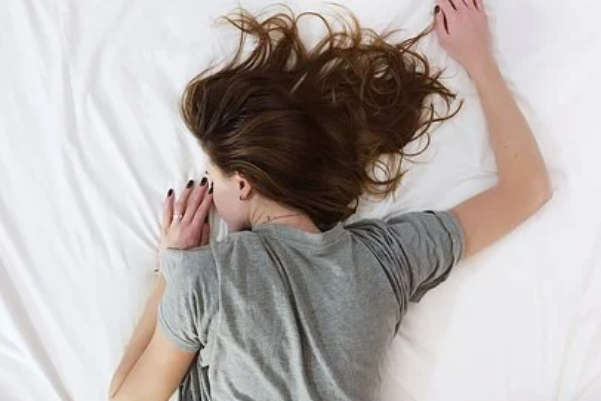
Sleep is a crucial part of our daily health and wellbeing. Without adequate amounts of sleep, we are more irritable, less focused, less energized, less creative, and less productive. Beyond this, we are more likely to be overweight, chronically ill, and suffer relationship issues without a proper amount of high-quality sleep.
Despite this information being readily available, studies are consistently finding that people are getting less sleep than they need. Think about how many hours of sleep is “normal” in your household or culture, then compare that to the early 1900s. In 1910, Americans got an average of nine hours of sleep per night. Most often, technology and unnaturally long working hours are blamed for this recent and unhealthy turn towards less sleep. Even if this is the case, it is your prerogative to ensure that you and any dependents you might have been getting enough sleep to remain healthy and happy.
The following will explore the concept of sleep deprivation in detail and the possible negative side effects that it can induce. We will also explore the ways sleep deprivation can be treated. Sleep is just as important as a healthy diet or regular exercise. Without enough high-quality sleep, your entire life can begin to feel like it’s taking a nosedive.
How Much Sleep Is Too Little?
It’s crucial to get proper sleep, especially at night. Health experts recommend getting at least eight hours of sleep each day. However, sleep requirements vary depending on several factors like the person’s age and health condition. But the real question is, how much sleep is too little?
Sleep deprivation means not getting enough sleep. Everyone requires a slightly different amount of sleep, but seven hours seems to be the most common minimum. If you feel like you are an outlier, you can keep a journal of hours slept and note down your mood and energy levels throughout the day to gain a better sense of your requirements. But as a rule of thumb, most people need seven or more hours of sleep each night. Despite this, experts at sleepauthorities.com have found that Americans get, on average, less than seven hours each night. This is called sleep deprivation.
Delusion refers to fixed, false beliefs in conflict with reality, involving some degree of paranoia. On the other hand, depersonalization pertains to seemingly unreal feelings or losing one’s sense of identity. Both of these are serious mental health issues, but they are easily prevented with proper rest and enough sleep.
The Effects Of Extreme Sleep Deprivation
Sleep deprivation can have horrific effects on the human psyche. Sleep deprivation is commonly used as a torture method by governments and political regimes attempting to gain information. In the most extreme cases, where an individual has been awake for three to four days straight, sleep deprivation causes hallucinations, psychosis, and a complete inability to interpret reality. The result of this can be illusions, delusions, depersonalization, and disordered thinking.
The Effects Of Moderate Sleep Deprivation
In middle-ground situations, sleep deprivation can cause anxiety, extreme fatigue, an overwhelming sense that the things around you are not real, heightened stress levels, and increased irritability. These symptoms can make productive work and successful social interactions nearly impossible. Beyond this, these symptoms can make basic tasks like driving or cooking difficult and, therefore, dangerous.
The Effects Of Mild Sleep Deprivation
Even in situations of mild sleep deprivation, people can experience an increase in the errors they make, impaired memory, slowed reaction time, difficulty learning new information, and difficulty processing social cues (which in turn damages relationships). There can be changes in behavior and impaired-decision making. There are also physical effects such as increased inflammation (which can lead to pain if you have certain pre-existing conditions like arthritis, impaired immune function (making you more likely to get sick, and increased appetite (resulting in weight gain if experienced frequently).
How To Recover From Sleep Deprivation

The only thing that can combat sleep deprivation is sleep. A single night’s rest isn’t going to cut it. Studies have found that for each hour of sleep loss, it takes four days of sleeping for at least seven hours to recover. This means that if you pull an all-nighter, you might be dealing with sleep debt for a month (or even longer depending on whether there are additional nights you don’t get your seven hours).
Sleep management is crucial to help recover from sleep deprivation. Start with your mattress, bedding, and pillows. Make sure that you’re comfortable enough with the firmness of your mattress and replace it with a new one when it’s old, worn-out, or sagging. Replace your bedding regularly to avoid discomfort brought about by smelly and itchy blankets.
Also, investing in high-quality pillows such as a Sobakawa pillow can make your sleep more comfortable. While pillows don’t have a direct impact on your sleep cycle, it sets the mood for a restful, deep, and continuous sleep.
Setting a schedule for napping and sleeping at night is also essential to avoid sleep deprivation. Make sure to sleep on your set schedule to develop a regular sleeping pattern. Frequent changes can disrupt your body’s sleep cycle, so make sure to set up and follow a sleeping routine as much as possible.
Many people try to cope with the symptoms of sleep deprivation by using caffeine, energy drinks, or other stimulants. These solutions might provide momentary respite from certain symptoms, but will not tackle the larger symptoms and will not improve your situation at all. If you have experienced sleep deprivation, the only thing you can do to improve your situation is to sleep.
Hopefully, the above information has made it clear to you how crucial a proper amount of sleep is. Think about the long term effects of just one of these symptoms. Let’s say you’re regularly sleep-deprived and are therefore often making decisions impaired. How do you think a few months of poor decisions will affect your overall life? Your bank account? Your performance at work? Your relationship? Now couple that one symptom with all the others and you can begin to see how dangerous regular sleep deprivation can be. Take care of yourself and get some sleep.
Become a Harlem Insider!
By submitting this form, you are consenting to receive marketing emails from: Harlem World Magazine, 2521 1/2 west 42nd street, Los Angeles, CA, 90008, https://www.harlemworldmagazine.com. You can revoke your consent to receive emails at any time by using the SafeUnsubscribe® link, found at the bottom of every email. Emails are serviced by Constant Contact








